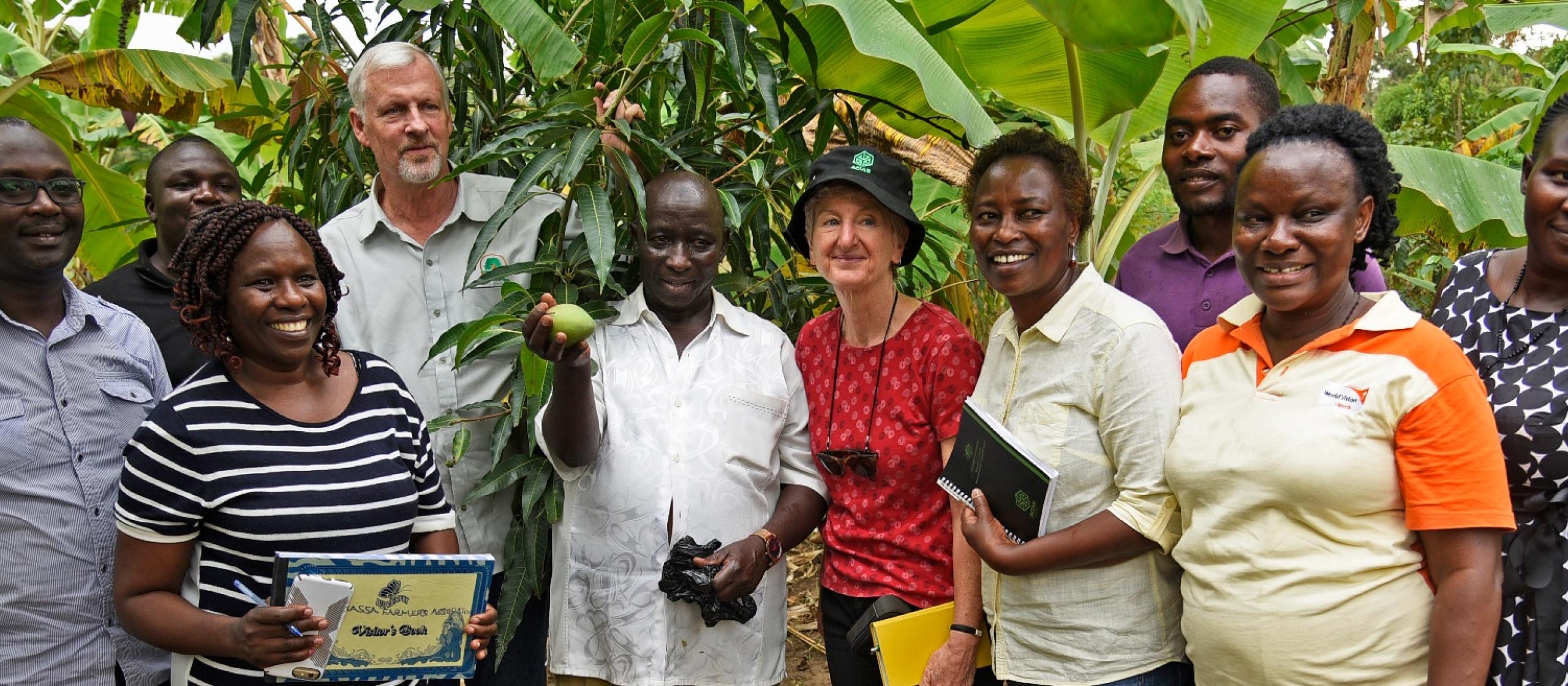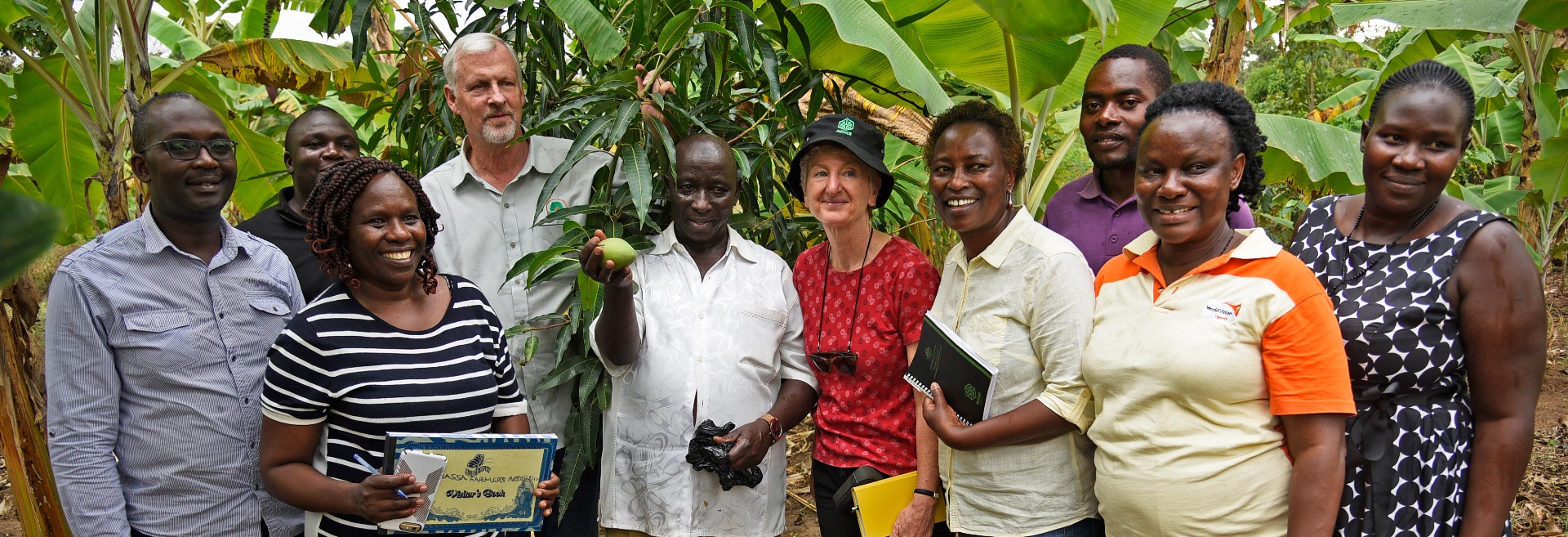- HomeHome
-
About ACIAR
- Our work
- Our people
-
Corporate information
- ACIAR Audit Committee
- Commission for International Agricultural Research
- Policy Advisory Council
- Agency reviews
- Executive remuneration disclosure
- Freedom of information (FOI)
- Gifts and benefits register
- Information publication scheme
- List of new agency files
- Contracts
- Legal services expenditure
- Privacy impact assessment register
- Commonwealth Child Safe Framework
- Benefits to Australia
- Careers
- 40 years of ACIAR
-
What we do
- Programs
- Cross-cutting areas
- Resources
- Where we work
-
Funding
- Research projects
- Fellowships
-
Scholarships
- John Allwright FellowshipScholarships to study in Australia for ACIAR partner country scientists to have Australian postgraduate qualifications
- ACIAR Pacific Agriculture Scholarships and Support and Climate Resilience Program
- Alumni Research Support Facility
- Publications
- News and Outreach
Date released
20 December 2021
Dr Nora Devoe, ACIAR Research Program Manager, Forestry
What does it mean to look after a forest? Southern Hemisphere foresters are generally either natural forest managers or plantation managers. Globally, foresters often straddle both, and while the 2 endeavours are very different, the principles are the same.
Start anywhere in the cycle: establish, tend, harvest. Protect from disease, fire or other damaging agents at all times. Understand and fulfil the owners’ objectives.
In the seminal forestry textbook The Practice of Silviculture (1962), Smith states, ‘The forester works for the good of the forest as an entity, not for the sake of the forest itself, but to ensure that it remains a permanently productive source of goods and benefits to the owner and to society.’
Balancing competing demands
Wood is only one of very many goods obtainable from forests, and soil and water conservation only 2 among very many benefits. Owners typically have a main objective and many secondary objectives.
During the first part of my career, I helped national forestry departments generate foreign exchange through sawlog sales. From this, I learned about the competing demands upon forests.
For people directly dependent on forests – for house-building materials, foods, fuel, medicines and all the many other requirements of daily life – sawlog production was too often disastrous.
I became a specialist in a type of forest management that aims to enable having one’s cake (a forest) and eating it too (sawlogs and other products). We are imperfect stewards, but foresters attempt to serve society through the maintenance and management of forests.
How foresters are made
A good forester has knowledge, skills and a service ethic.
Tertiary education is essential. Forestry is an applied science resting on more fundamental natural and social sciences. The more general courses include topics like ecology, soil science and economics. Specialist subjects like fire protection, harvesting and mensuration (measuring) are also required. Rural sociology is a useful elective course.
In Australia, specialist forestry courses have become less and less available. Only one undergraduate forestry degree remains on offer, at Southern Cross University. Recently this been reduced from a specialist 4-year degree to a 3-year program with a higher proportion of more general sciences.
The loss of specialist training has consequences.
Consider this example. As the ACIAR Forestry Research Program Manager, I was asked to assist a Pacific national forestry department with a basic forest inventory. I interviewed 2 very articulate, thoughtful Master’s graduates with a view to sending them overseas for the task. Neither had the faintest idea how to conduct a forest inventory and had never held the most basic forester’s tool, a diameter tape.
Regional training needs
In terms of training our partners in the Pacific region and elsewhere, Australia has strong post-graduate forestry offerings. However, a more critical need is for fundamental skills taught at the undergraduate level.
Oceania – including Australia, New Zealand and Pacific island countries – has a high number of PhDs relative to Bachelor’s degree graduates and a very low number of foresters per forested hectare. Moreover, a generational and demographic divide between students and professionals, and growing demands on professionals’ time, has reduced early-career on-the-job training and mentoring.
As increasing pressure is placed on foresters to provide essential wildfire mitigation, carbon sequestration and water yield regulation, in addition to traditional wood products, the demand for boots-on-ground professionals is at an all-time high.
Opportunity to grow
We can grow the capacity we need in Australia and in our region first by ensuring that professional specialist education remains available at undergraduate as well as post-graduate levels
Personalised mentorship is the second requirement. Young foresters learn the values and norms of the profession from senior foresters. Interpersonal relationships can open doors to career and professional development. This is especially important in island nations with few foresters and limited networking.
The bigger economies, like Indonesia and Vietnam, are very advanced in their forestry practice. Through John Allwright Fellowships (JAFs) for post-graduate study in Australia, ACIAR develops research capacity and forestry leadership. JAFs have benefitted many countries large and small. But the Pacific region in particular needs all-rounder, broadly competent foresters disposed to serve the needs of their people.
Forestry Australia’s (formerly the Institute of Foresters of Australia) Foresters without Borders is the sort of volunteer effort that can place highly experienced professional foresters into national forestry departments to mentor and develop staff. Professional associations like the International Society of Tropical Foresters (ISTF) also help connect developing and developed country professionals.
I am now organising an Australian ISTF chapter in the hope that this chapter will foster a chapter for Pacific islands countries.
ACIAR forestry projects are increasingly emphasising research leadership from in-country partners and formal educational opportunities for project staff. Cross-cultural, 2-way mentoring is now a feature of all projects.
The ACIAR forestry portfolio includes new projects on forest restoration – a priority for partner countries across our footprint. Foresters are keen to address issues affecting the future resources of their countries and ACIAR is keen to support their abilities to do so.
Key points
- Across Australia and Pacific island countries there are very few professional field foresters per area of forested land.
- Tertiary education and mentoring of junior foresters support knowledge transfer and basic skills development to ensure forests are managed to maximise their benefits for communities.
- ACIAR is supporting both voluntary and project-based efforts to support the professional development of budding foresters across the region.





